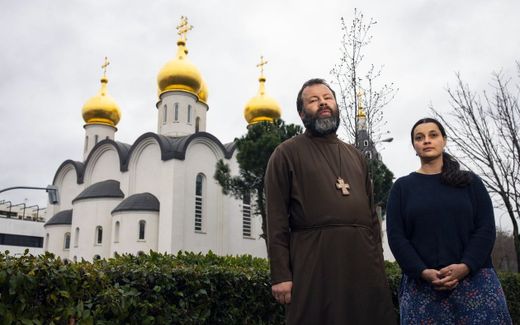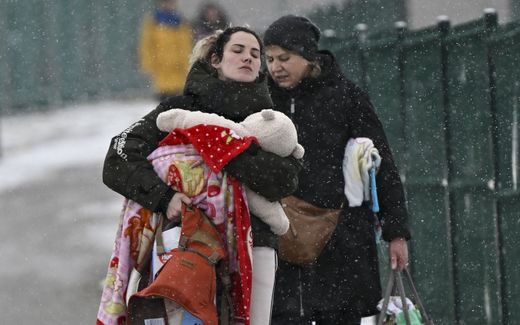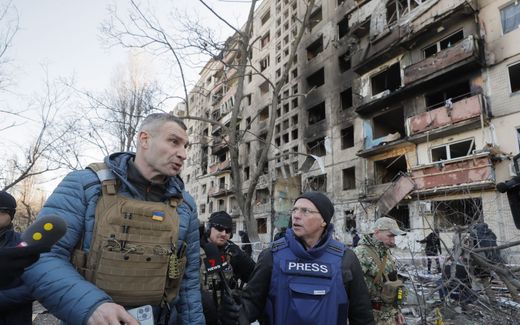Should the German church support weapon deliveries to Ukraine?
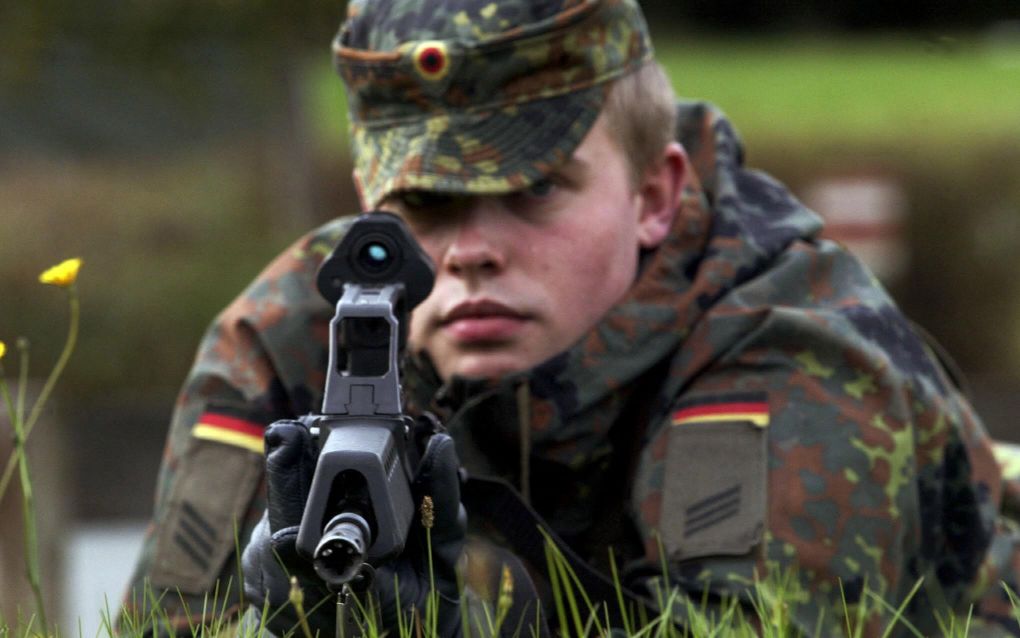
German soldier. Photo AFP, John MacDougall
Central Europe
To what extent should the church support weapon deliveries to Ukraine, knowing that these instruments are used to kill people? The German pacifist Margot Käßmann -former EKD chairwoman- and former military bishop Sigurd Rink talk about the ethics of self-defence.
Images of killed civilians, destroyed buildings and destructing explosions spread rapidly. Yet, both Käßmann and Rink still believe in maintaining a peace policy. They both say this in an interview with the German weekly Die Zeit. Even though war is terrible, Käßmann argues that peace is always right. "The attempt to live in peace with Russia will be necessary again after the war."
On the other hand, Rink asserts that the brutal murders which shocked the world "have nothing to do with warfare." He finds these crimes even more depressing than the breaking down of the peace order in the world.
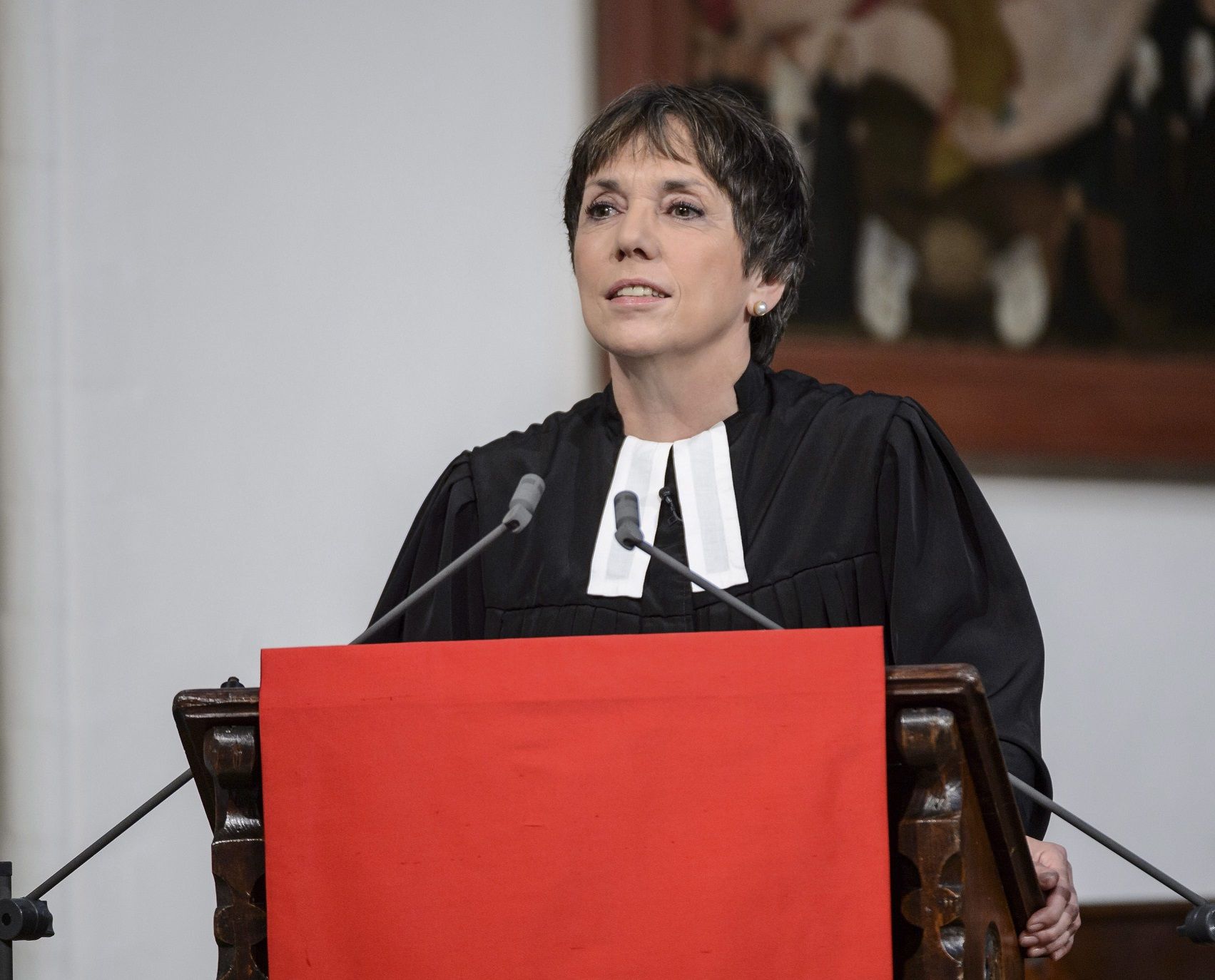
Both Rink and Käßmann worry about the traumatisation that the war causes for people. Käßmann refers to the Second World War: "Old people from the church sometimes tell me how they experienced the war. Their repressed memories now come back forcefully." Rink adds that Ukrainians have already suffered oppression multiple times. "First under Stalin, then by the Nazis. Fear and horror are burned into the collective memory. From the pastoral care of soldiers, I know how terrible re-traumatisation can be."
Is a defensive war ethically legitimate?
In short, the issue of battling this violence is actual and urgent. Every day people kill and are killed in Ukraine. Yet, Käßmann believes these injustices should be fought with "even more negotiations, mediation and disarmament."
Rink disagrees. He says to Die Zeit that Christians are allowed to defend their own lives and the lives of others with weapons. "A defensive war is ethically legitimate. Since Ukraine is defending itself, the churches are allowed to support the supply of weapons." Furthermore, he adds that he does not believe that Ukraine can push back the Russians by itself. "As a Christian, I must protect those entrusted to my care. In Ukraine, the international community must now support an oppressed people to fight back. The churches should not stand in the way of that. Doing nothing is not an option."

Even though Käßmann acknowledges that Luther said that a soldier could be "of Christian standing", she holds onto her pacifist position. "Weapons will not be the solution; peace negotiations will be. My longing is for peace without military deterrence."
She points out that Jesus Himself told Peter, who wanted to defend him in the Garden of Gethsemane, to put his sword back. "For me, Jesus is authoritative. He says: "Blessed are the peacemakers" and "Pray for those who persecute you."
Both Rink and Käßmann are convinced that it is wrong for Christians to see all Russians as enemies. Rink: "Collective ostracism is always wrong. As a Christian, I must not lump others together. And Germans of Russian origin will still be important in rebuilding the bridges to the Ukrainians that have now been torn down by force."
In addition, both of them stress the importance of conversation between the two parties. "I also think it is wrong that German cities and universities are cancelling their partnerships with Russia", Käßmann says to Die Zeit. "If we now cut all contacts, who will support the soldiers' mothers who are silenced in Putin's society of fear?" Rink: "The churches have failed in preventing the war. The cooperation between West and East was not too much, but too little. Now we lack direct ways of exerting influence."
Danger of being drawn into the war
Since the Russian invasion of Ukraine, Germany has started significant investments in its army. Käßmann opposes this spending. She argues to Die Zeit that it is better to invest money in schools and climate strategy. "I favour providing the Bundeswehr with decent equipment, but I would like to know first where the considerable military funds of recent years have gone."
Käßmann is mainly concerned about the thin line between defensive and offensive weapons. "My main concern is that Germany will unintentionally be drawn into the war."
Related Articles



